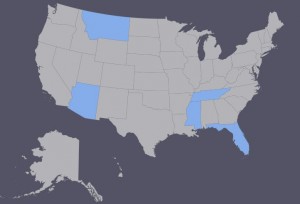 Tennessee Education Report
Tennessee Education Report
Andy Spears of the Tennessee Education Report says sponsors of Tennessee’s new education savings account program for children with special needs don’t know much about the bill they just passed.
But it may be Spears who doesn’t understand the bill, as he spends more time speculating on parental rights than explaining what it would do. He also also incorrectly claims that Florida started a “similar program” in 1999.
First, let’s address Tennesee’s new school choice bill. The apparent confusion likely stems from a tendency among critics of private school choice to label all such programs as “vouchers.” Tennessee could soon become the fifth state to implement a flavor of school choice known as education savings accounts, which are different from traditional vouchers.
The new program would allow parents of students with Individualized Education Plans access to education savings accounts worth up to $6,600. The accounts will allow parents to pay for private school tuition, fees, textbooks, school supplies, curriculum, tutoring, exam fees, services contracted by a public school (including individual classes and extracurricular activities), college savings accounts, as well pay for therapies with the child’s physician and more. There is a similar program in Florida, but it started in 2014, not 1999.

It is a fair concern, but Spears should stop and wonder why so many parents in Florida are have chosen private schools or home education. He might also wonder why, if IDEA ensured every child’s needs were met, a cottage legal industry of parent advocates has sprouted up to sue school districts on behalf of shortchanged students.
For some parents, having a choice protects their children’s rights more effectively than any regulation. It might not be for everyone, but neither is the status quo.
Grade: Needs improvement
Tennessee Legislature

By the afternoon, however, that same legislative body passed an education savings account program for special needs students.
A governor’s signature is still needed, but it looks like Tennessee will become the third state (after Montana and Mississippi) to pass an education savings account bill this year.
That was a nice surprise.
Grade: Satisfactory
Tennesseans Reclaiming Educational Excellence

In an interview about the death of that state’s voucher bill, TREE president Lyn Hoyt told the Tennessean:
Voucher programs have proven to hurt students by lowering their achievement levels, limiting their access to special services and forcing them to jump between schools that either decline to re-enroll them or cease accepting vouchers.
Voucher programs have proven to hurt public schools by pulling needed resources from the schools and increasing churn. And voucher programs have proven to hurt taxpayers by decreasing efficiency and accountability in education.
Hoyt claimed a lot of things have been proven about vouchers, unfortunately, the article doesn’t provide any such proof. TREE’s website doesn’t provide a lot of evidence either, but it does claim to have “comprehensive data” from the Milwaukee Parental Choice Program. This data is merely a single unsourced chart with apples-to-oranges comparisons based on test scores and things like enrollment in gifted programs.
In another gem, the organization says private schools are unaccountable, but without any recognition of the contradiction, also claims kids will be harmed if private schools are kicked out of the program for failing to meet its requirements.
Which is it?


